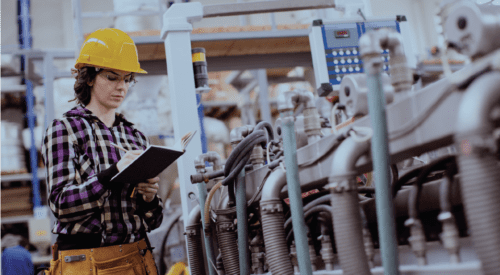
Steel Industry Relies on Peak Demand to Reach Net Zero at Its Own Peril
A new RMI study finds that the deployment of deep decarbonization technology must be rapidly accelerated if net-zero targets are to be reached, and that first movers will be rewarded with significant market opportunity for green steel.
Boulder, CO – May 24, 2022
A new report by RMI, formerly Rocky Mountain Institute, reveals that global demand for steel will not peak in time to keep this hard-to-abate industry in line with decarbonization targets, given current growth outlooks.
If steel production continues at the current compound annual growth rate of 3 percent, the industry will have reached the allowable 2050 demand under climate-aligned pathways in just two years. The steel industry can meet climate goals either by rapidly adopting decarbonization technologies or through steep reductions in steel demand — but the latter option would put steel producers’ business models and supply chains at grave risk.
“Dramatically cutting demand to meet targets would have crisis-level implications for producers and iron ore suppliers,” said Thomas Koch Blank, Senior Principal in the Climate-Aligned Industries Program at RMI. “Either the industry accelerates decarbonization now by deploying green production technology, or they risk attempting to raise capital to facilitate the transition in an environment of falling demand.”
In a call to action to industry and policymakers, the brief argues that deployment of deep decarbonization technologies for ore-based primary steel, like green hydrogen-powered direct reduced iron (DRI), must be urgently accelerated. Industry first movers will be rewarded with significant market opportunity, especially in renewables-rich, iron ore-producing countries like Australia, Brazil, and South Africa.
“New entrants situated near renewables and iron ore deposits could cash in on their regional advantage. Policymakers can further spur development with incentives, like a hydrogen production tax credit, to bring green hydrogen-based steelmaking to cost parity sooner,” said co-author Chathurika Gamage, Manager at RMI.
Media Inquiries please contact:
Alexandra Wall
Strategic Communications Manager, RMI
T: +52 55 5050 1111
E: awall@rmi.org
About RMI
RMI is an independent nonprofit founded in 1982 that transforms global energy systems through market-driven solutions to align with a 1.5°C future and secure a clean, prosperous, zero-carbon future for all. We work in the world’s most critical geographies and engage businesses, policymakers, communities, and NGOs to identify and scale energy system interventions that will cut greenhouse gas emissions at least 50 percent by 2030. RMI has offices in Basalt and Boulder, Colorado; New York City; Oakland, California; Washington, D.C.; and Beijing.
More information on RMI can be found at www.rmi.org or follow us on Twitter @RockyMtnInst.